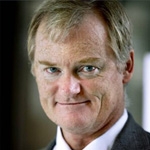 Postpartum Online Course(s) & Continuing Education
Postpartum Online Course(s) & Continuing Education
Access the latest clinical skills and research for Postpartum for Access the latest Pregnancy, Labour & Childbirthprofessional training. These Postpartum online courses provide practice-changing skills and valuable perspectives from leading global experts. This Postpartum education has been accredited for a variety of CEUs / CERPs and can be accessed on-demand, at your own pace.

Zero Separation of Mother and Newborn: The Science Behind the Concept

Dr Nils Bergman calls himself a Public Health Physician, and currently promotes and researches skin-to-skin contact on a fulltime basis.
He is an Honorary Senior Lecturer at the University of Cape Town, South Africa, and a research affiliate of the South African Medical Research Council.
Dr. Bergman was born in Sweden and raised in Zimbabwe, where he also later worked as a mission doctor. He received his medical degree (MB ChB) at the University of Cape Town, and later a Masters in Public Health at the University of the Western Cape. During his years in Zimbabwe he completed a doctoral dissertation (MD, equivalent to PhD) on scorpion stings. He has worked in rural South Africa, Zimbabwe and Sweden, and his last posting was Senior Medical Superintendent of Mowbray Maternity Hospital in Cape Town, overseeing 18000 births per year.
He enjoys sharing the wildlife of Africa with his wife and three youngsters.
Topic: Zero Separation of Mother and Newborn: The Science Behind the Concept - [View Abstract]
The central dogma of all biological processes is based on DNA and genes, how these make proteins and specifically neurons, and how such neurons result in a brain producing behaviours, with the overriding objective of ‘reproductive fitness’. This presentation translates this dogma to the context of human birth, with the emphasis on the role of the environment is epigenetically informing genes how to make protein, through environmental sensory inputs formatting the brain to that environment, in which reproductive fitness encompasses not just survive but also thrive. The perinatal period is crucial to a number of biological processes, with the mother’s body being the defining environment for human newborns. These can be listed as transition to extra-uterine life, early suckling and colostrum protection, microbiota protection, sensory regulation of physiology, and sensory bonding to parent, synchrony of state organisation with feed and sleep cycling, synchrony and sensitization to and of the mother (and father) with a narrow window of opportunity in the first day. All these processes are place dependent, i.e. only happen in immediate and continuous maternal-infant skin-to-skin contact. Separation has immediate adverse consequences, disrupting all described above. It is not merely a temporary hold up of positive development; it is an active adaptation of stress biology with life long consequences for social and physical health. Bowlby first described this concept as the “Environment of Evolutionary Adaptedness”, Narvaez provides contemporary updating in the “Evolved Developmental Niche”.

View Details / Enroll







